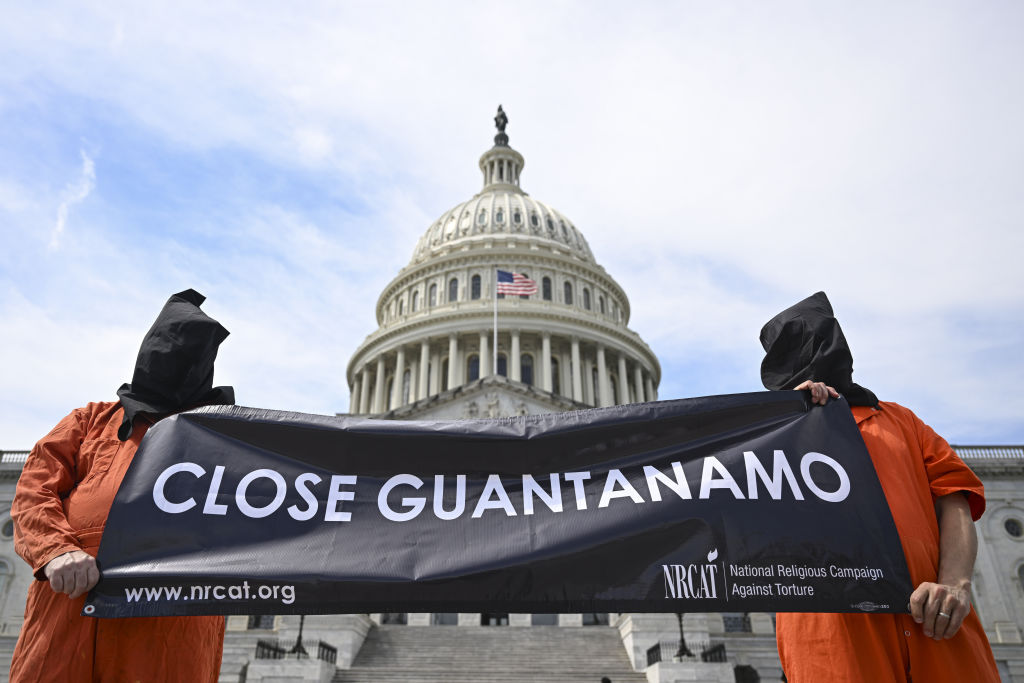Conditions at Guantanamo Bay inhumane and cruel, UN investigator says


A free daily email with the biggest news stories of the day – and the best features from TheWeek.com
You are now subscribed
Your newsletter sign-up was successful
The last 30 men detained at Guantanamo Bay are subject "to ongoing cruel, inhuman and degrading treatment under international law," a United Nations human rights investigator said Monday. The prisoners include men accused of plotting the Sept. 11 terrorist attacks.
Fionnuala Ní Aoláin, a law professor in Minnesota and Ireland and the U.N.'s special rapporteur on counterterrorism and human rights, was the first U.N. investigator granted access to the detention facility since it opened in 2002. She compiled her findings in a 23-page report based on a four-day visit in February, during which she interviewed detainees, attorneys and former prisoners, per The New York Times.
Though Ní Aoláin noted that "significant improvements" had been made to the detention center, she expressed "serious concerns" about the wellbeing of the remaining detainees, who she said still face severe suffering and anxiety due to the effects of solitary confinement, excessive force and inadequate health care. Many detainees she met with showed signs of "deep psychological harm and distress," and were sometimes deprived of support from family or legal counsel. The facility's conditions "may also meet the legal threshold for torture," she added.
The Week
Escape your echo chamber. Get the facts behind the news, plus analysis from multiple perspectives.

Sign up for The Week's Free Newsletters
From our morning news briefing to a weekly Good News Newsletter, get the best of The Week delivered directly to your inbox.
From our morning news briefing to a weekly Good News Newsletter, get the best of The Week delivered directly to your inbox.
In the report, she conceded that the attacks on Sept. 11, 2001, were "a crime against humanity." Still, she criticized the United States' use of torture against prisoners facing criminal charges as "the single most significant barrier to fulfilling victims' rights to justice and accountability." Torturing those accused of plotting the attacks is "a betrayal of the rights of victims."
In response, the U.S. ambassador to the Human Rights Council, Michele Taylor, submitted a statement defending the detention centers, stating that prisoners "live communally and prepare meals together; receive specialized medical and psychiatric care; are given full access to legal counsel; and communicate regularly with family members." U.S. officials "are nonetheless carefully reviewing the [special rapporteur's] recommendations and will take any appropriate actions, as warranted."
A free daily email with the biggest news stories of the day – and the best features from TheWeek.com
Theara Coleman has worked as a staff writer at The Week since September 2022. She frequently writes about technology, education, literature and general news. She was previously a contributing writer and assistant editor at Honeysuckle Magazine, where she covered racial politics and cannabis industry news.
